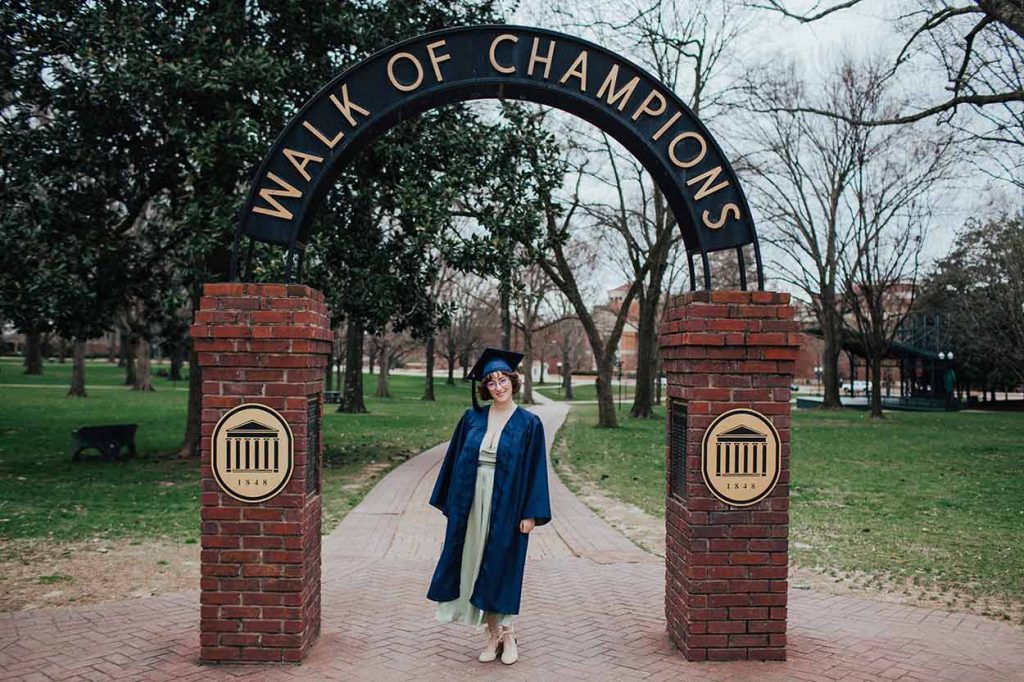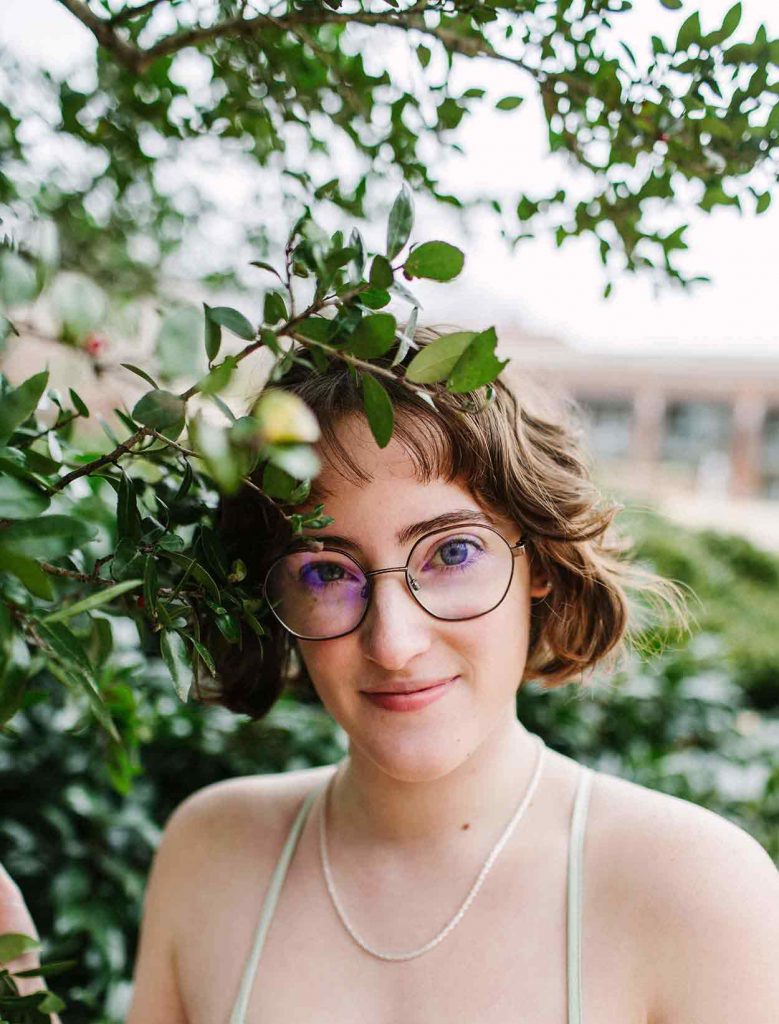Taliya Harman pursues unique passion of studying Chinese and filmmaking at Ole Miss
Like children in most military families, Taliya Harman, a member of the University of Mississippi’s first graduating class of B.F.A. in Film Production students, moved around a lot growing up.

Before her senior year of high school, her father got a job in Ocean Springs. At that point, Harman, who had for some time been interested in both Chinese and filmmaking, was looking for colleges that offered strong programs in both.
“Not surprisingly, it’s an odd combination,” Harman said. “It seemed like every college was either more oriented to film or more to Chinese.”
Thinking ahead, Harman did a simple search – “Chinese Mississippi” – and discovered that the University of Mississippi’s Chinese Flagship Program is one of the best in the country. When she learned soon thereafter that the Department of Theatre and Film would be launching a new film program her freshman year, her decision to come to UM was sealed.
“I started learning Chinese, and after the year passed, I really enjoyed it and stuck with it, and I ended up learning Japanese as well, just for fun,” Harman said. “But Chinese was the one that I got a lot better in.”
One surprising aspect of this serendipitous timing is that originally, Harman was interested in Japanese and thought she’d become an author.
In middle school, Harman was a fan of anime and intended to study Japanese; her father, “being pragmatic,” suggested Chinese instead, and struck a deal with her to study Chinese for one year and then move on to Japanese if she still wanted to.
“I started learning Chinese, and after the year passed, I really enjoyed it and stuck with it, and I ended up learning Japanese as well, just for fun,” Harman said. “But Chinese was the one that I got a lot better in.”
Home-schooled in high school, Harman was “able to get ahead of myself.” Drawn in by what she referred to as the mysteriousness of Chinese culture, she threw herself into her studies, ultimately doing a study abroad the fall of her senior year in high school as well as completing UM’s Summer Language Institute. Her freshman year, she entered the Flagship Program with the sophomore class.
In filmmaking, however, she was practically a complete beginner.
“From a young age, I always really enjoyed writing, and I knew I wanted to do something creative that involved storytelling,” Harman said. “For the longest time, I thought, ‘I’ll be an author and write books.'”

But then, in a middle school media class, she had an opportunity to make a commercial and quickly realized how much she enjoyed the process of writing, filming and editing. At the time, Harman’s older sister was a college freshman studying acting and doing short films with students; she inspired Harman to consider filmmaking.
Harman originally thought she wanted to be a director.
“I think that’s kind of what everybody thinks when they go into filmmaking,” she said, because it’s the highest position with the most control.
“But I realized early on that I actually really like being behind the camera, so that’s why I’ve become more interested in cinematography.”
The film production program takes every student in its small cohort – 16 per year, who complete every step together – through every aspect of filmmaking, which Harman said is an advantage of the program.

“There have been some projects that I never would have thought of wanting to do but that have been really helpful in learning how to make films in general,” she said.
Another highlight of the program is access to an extensive library of professional equipment, which students can check out for projects both in and out of class.
“I learned that I was technically not very good at lighting, which is a really important part of cinematography,” Harman said. “When I started trying to get better at my lighting, I just checked out all the lights we had,” playing with them and learning how they work and what they do.
While Harman may initially have had a hard time finding a college that would allow her to fully invest in her shared passions of Chinese and filmmaking, she has no difficulty imagining how she might bring those passions together.

“I would love to, in the future, if I could make films with Chinese influences,” she said. “And I would love to make films about China in a way that helps Westerners understand it a bit more.
“As I said before, it’s so mysterious … there’s so much there to explore.”
In the meantime, Harman plans to move to Atlanta – one of the region’s thriving centers in the industry, often dubbed “The Hollywood of the South” – and hopes to start as a production assistant and work her way up the ladder. She also wants to buy a camera so she can make films and eventually be hired as a cinematographer on others’ projects.
“I just want to enjoy what I do and make a living,” Harman said.
By Katherine Stewart, Department of Theatre and Film



